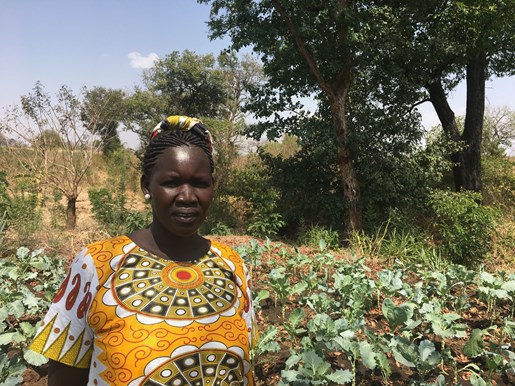Learning by doing
Funded by the Dutch Government and implemented by NIRAS as lead in partnership with WE Consult and Witteveen+Bos, Water for Eastern Equatoria is five-year integrated water resource management project that aims to foster resilience, deliver economic development, improve health, and promote peace in a long-term, participatory process. The programme targets three key components — integrated water resource management, water for productive use such as farming or livestock, as well as safe water and improved sanitation and hygiene. Livelihood-creating, quick-impact interventions with a long-term perspective are also a key part of the project and cut across all three components.
Erwa was selected to host the “farmer field demo day” in Torit because he was very active in a group of farmers supported with training as part of the project. He had started by himself, growing bananas and papayas on a very small scale about five years before. In the early days of the project, Joseph received sweet pepper seeds and did so well on his own, it was felt with a little support he could really scale production up. Thanks to his determination and hard work, he was selected to receive additional support from Premium Ago Consult, an agribusiness development service based in the capital, Juba. Two partners from the firm, Ramson Duku and Taban Elizara, spent considerable time with the farmer.
Their support began with a three-day training on the practical aspects of establishing a viable commercial farm and assessing where Erwa’s skills and interests lay. Then over a period of about five months, they went to work side by side with him on the farm, clearing and preparing the land, establishing a nursery, doing bed layout and preparation managing the crop, advising on weeding, pest control and the like ... essentially offering in-person guidance during each phase. They even went so far as to research the market and advise him on what prices he should be charging and how to calculate this going forward while taking all his expenses into account.
“It’s important to physically be with farmer. Providing technical support is key because hands-on practice is the best way to ensure they have understood the process and know how to resolve problems,” Ramsom explains. “You can bring someone tomato seeds and equipment, but if he doesn’t know what to do with them, it’s useless. That’s the difference here.”




